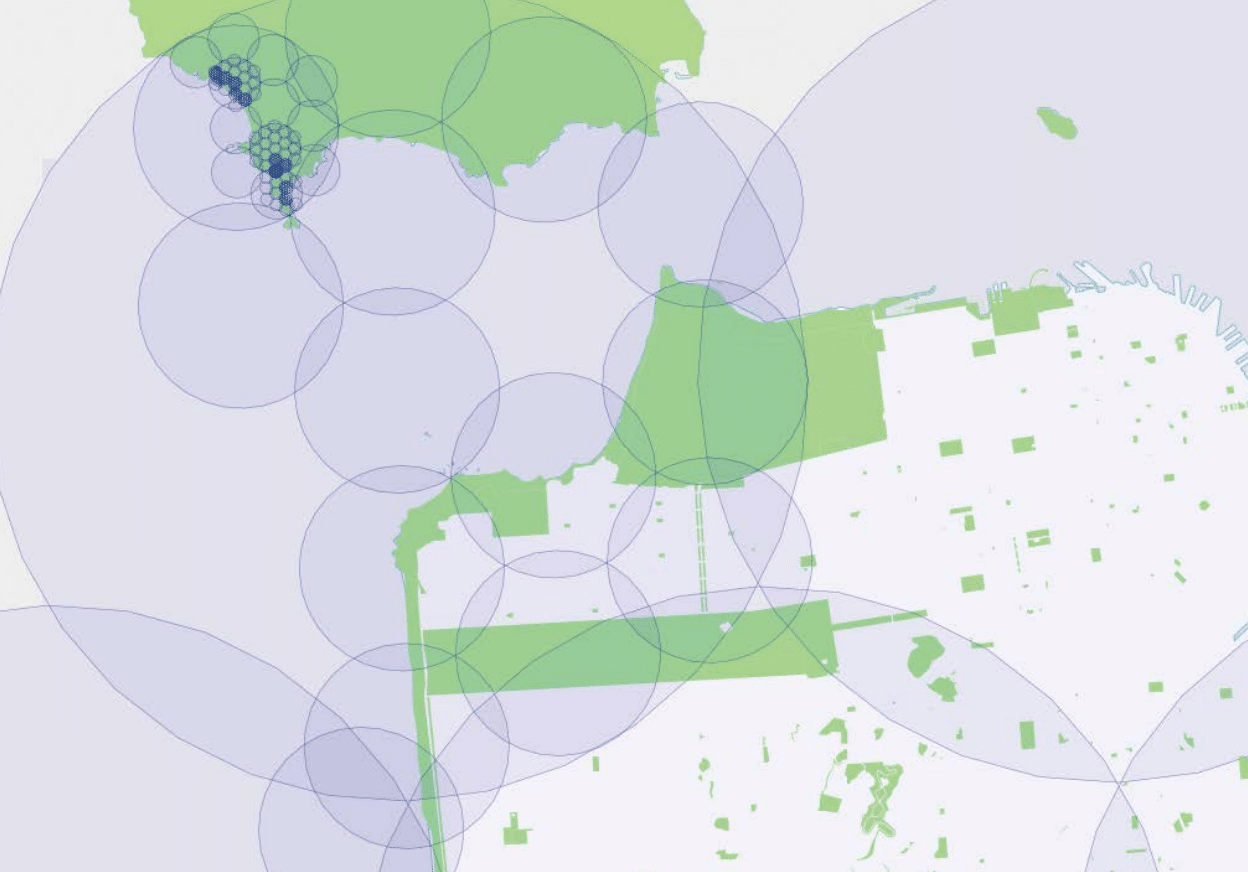
ERIC RODENBECK & QUENTIN HARDY In conversation with Andrew McClintock
San Francisco Arts Quarterly
05.01.2014
Quentin Hardy: So I write about the tech sector for the New York Times and a really interesting thing about this is that historically there has always been a very close relationship with Silicon Valley and what Eisenhower called the military industrial complex…One of the weird things in the last ten years is that we don’t go there anymore, now they come here . . . . We took the future out to them. Now they feel like it’s so important and changing so quickly they’re coming here.
Eric Rodenbeck: When you say they’re coming here, you mean Rand is setting up offices in Silicon Valley?
QH: Well, think tanks have always been somewhat involved, but General Electric has completely reformulated its businesses around software and has more than 200 guys in San Ramon, and a Cisco executive is in charge of it. And Ford has a shop in Palo Alto, where they do a lot of spitballing around stuff. You’re probably seeing a different quality customer than you did five years ago. Much more like what they used to call Suits.
ER: But not in San Francisco. Right, you mentioned places like San Ramon.
QH: Not in San Francisco itself. Give it time, give it time. There’s already plenty of money guys here, financial people.
ER: And they’re already at their desk at 6:00 in the morning watching their computer screen.
QH: Part of the element of them drifting up here is it signifies a shift in the regional bounds of power. San Francisco is a dominant city and now these propeller-heads from down in the Peninsula are claiming stake to our urban paradise.
ER: And I certainly have mixed feelings about that—I moved to San Francisco to be somewhere different—not because some asshole with Google Glass—
QH: Yeah, you didn’t want to overhear conversations about some new app or code developer. Well, sorry, they’re not going away. I think all the protests in the world on buses are not going to turn this away. This is a thing that’s happening, so let’s deal with it.
ER: It’s really interesting. It’s not a local gentrification issue—it’s a whole urban re – wiring. QH: And there’s a certain existential dimension to this. Will they want our art; will they give us spaces where we can continue create? What’s your sense of that?
Andrew McClintock: And also, will they follow in the footsteps of other great American industry leaders and eventually support and build museums and foundations. There’s a couple of them that have joined the boards at SFMOMA or the Bay Lights thing and this is their attempt to do that, but it’s not from the ground up enough, they are more focused on the top of the cake, when the support is needed on all levels.
QH: It’s pretty to think so, but I’m not so sure that’s happening. I mean, these guys, they will be generous, but for them, it’s different than it was for the magnates in the gilded age who had a real interest in the humanities. And there was a shared sensibility that you could elevate the common man. Carnegie libraries across America. By the way he built libraries that were empty and they had to be filled with books by the local communities – it was very much a quid pro quo. He had a Kickstarter thing of his own going on there.
ER: Oh, that’s fun! Carnegie the great crowdsourcer—and that’s important to start to think about–not just the big moguls but everybody—that’s where Kickstarter is the bridge—it lets everybody be a little Carnegie

